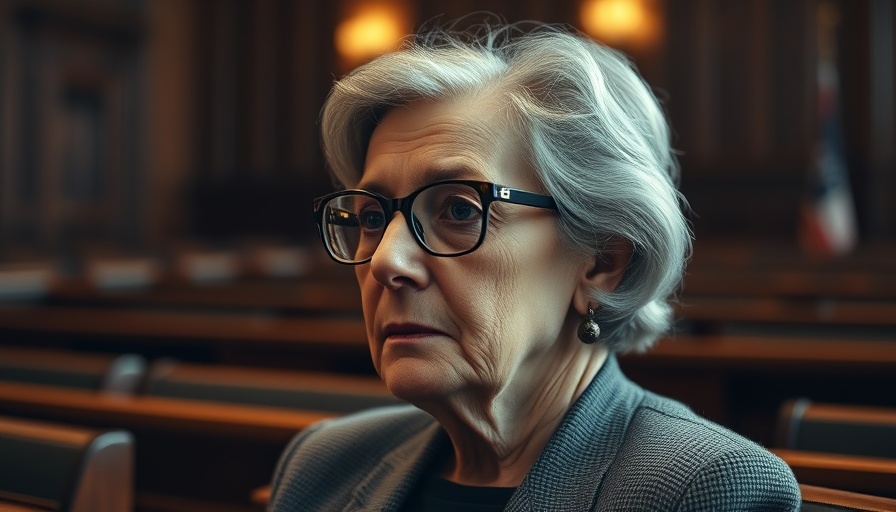
Patricia Krenwinkel Denied Parole: A Look Back at the Tragedy
On October 15, 2025, California Governor Gavin Newsom made the weighty decision to deny parole for Patricia Krenwinkel, one of the most infamous followers of cult leader Charles Manson. Krenwinkel's involvement in the gruesome murders of pregnant actress Sharon Tate and four others in 1969 still casts a long shadow over California, reminding us of the devastating impact of violence and evil. With this decision, Newsom affirmed that Krenwinkel still presents a danger to society, a stark reflection of a past that still haunts the present.
The Unfolding of a Dark Chapter in History
The events surrounding the Manson Family murders are not merely historical footnotes; they are poignant reminders of how easily society can be influenced by leaders who manipulate vulnerable individuals. The August night in question marked a turning point, not just in crime statistics but in cultural perceptions of safety and trust. What drove a young woman like Krenwinkel to become part of such a notorious crime? Understanding this backdrop is essential in recognizing the dynamics of manipulation, co-dependency, and the lasting scars left on communities.
Current Safety Concerns: Why Now?
Governor Newsom's decision came with a stark warning: Krenwinkel remains a public safety risk. This sentiment was echoed by Los Angeles District Attorney Nathan Hochman, who highlighted that Krenwinkel does not fully accept the gravity of her actions during that tragic night. Victims' families have expressed relief over the decision, noting that their wounds remain fresh and unresolved, making the release of such an infamous figure unacceptable. The past doesn't simply vanish; it reverberates through every cycle of public safety and justice.
Domestic Violence Awareness: A Surprising Angle
Krenwinkel's attorney, Keith Wattley, took a different route, arguing that Newsom's decision ignored her status as a documented survivor of domestic violence, particularly poignant during Domestic Violence Awareness Month. This part of her life story adds complexity to her narrative, challenging the simplistic notions of guilt and innocence. It serves as a reminder that the consequences of domestic abuse can ripple out, affecting decisions made years later and creating dialogues about the support needed for survivors. Shouldn't all aspects of one's life, including trauma, be considered in the path to rehabilitation?
The Community's Perspective: Healing and Reflection
As part of the Bay Area's lifestyle-conscious community, we must reflect on what stories like Krenwinkel’s mean for our societal fabric. Each denial of parole or release carries with it a narrative that fundamentally impacts how we think about justice, legacy, and healing. Patricia Krenwinkel’s case pushes us into uncomfortable territory, questioning what rehabilitation means for someone who has committed unspeakable acts. For many in our community, the tales of such violence can diminish trust and stir fears about safety, igniting discussions regarding how we view offenders versus victims.
Moving Forward: What Can We Learn?
While the past cannot be altered, we hold the power to engage with its lessons. As we consider Krenwinkel's denial of parole and the surrounding discourse, let us be reminded of the resilience of communities and the importance of fostering dialogue about safety, healing, and understanding. This case, grounded in tragedy, invites us to explore humanity's potential for both evil and redemption. How can understanding the complexities of such individuals contribute to greater collective well-being?
Ultimately, diving into these dark waters forces us to confront unsettling truths about ourselves and our society. In highlighting Krenwinkel's story, we can take this moment to advocate for safer communities, support domestic violence survivors, and deepen our understanding of the intricate tapestry of human behavior.
Join the Conversation
As we remember the tragic events of 1969, let’s keep the dialogue going. There are many questions to consider about rehabilitation, responsibility, and the future of our communities. Your thoughts and insights are invaluable. What does justice mean to you? How can we balance compassion with accountability? Share your thoughts and become a part of a nurturing conversation that strengthens community ties.
 Add Row
Add Row  Add
Add 



Write A Comment